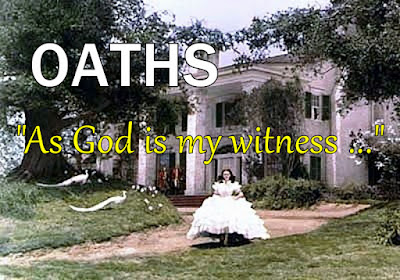THE JESUS MODEL OF CONFLICT RESOLUTION
Matthew 18:15-22
In Ephesians 4, Paul is focused on
the problems that divide and weaken the church. He wrote:
“We
must no longer be children, tossed to and fro and blown about by
every wind of doctrine, by people’s trickery, by their craftiness
in deceitful scheming. But
speaking the truth in love, we must grow up in every way into him who
is the head, into Christ, from whom the whole body, joined and
knit together by every ligament with which it is equipped, as each
part is working properly, promotes the body’s growth in building
itself up in love.
Put
away from you all bitterness and wrath and anger and wrangling and
slander, together with all malice, and be kind to one another,
tenderhearted, forgiving one another, as God in Christ has forgiven
you.” (Ephesians 14-15, 31-32)
If
anything can sicken, weaken and tear apart a church, it’s the toxin
of unresolved conflicts and unforgiveness.
Paul
urges us to “speak the truth in love,” in Christ’s love, but
what does that look like, and how do we put that into practice.
That’s what we’re going to learn in today’s message, “The
Jesus Model of Conflict Resolution.”
Who
likes conflict? I know I don’t. Growing up, my little sister and
I didn’t have very good role models for handling differences. My
mom had a "peace at any price" philosophy. Don’t talk about it, deny
the hurt feelings, avoid actually working it out. Needless to say,
my sister and I carried a lot of anger and hurt feelings into
adulthood that poisoned our relationship with each other and resulted in years of estrangement.
That’s
what can happen in a church when we don’t learn how to speak the
truth in love to one another and work out our difference in a healthy and loving ways.
The
grace we find in speaking the truth in love is reconciliation of
relationships, transformation of lives, and a stronger, healthier
church. It is motivated by the love of Christ for one another and in
a spirit of humility. John Wesley taught that speaking the truth in
love should always begin with these words, “Brother/sister, may I
speak my heart to you?”
Because
most of us would rather bury the hurt rather than confront people, in
Matthew 18-22, Jesus gives us a model in which we can apply speaking
the truth in love. There are four steps (from The Message):
Step
1. “If a fellow believer hurts you, go and tell him – work it
out between the two of you. If he listens, you’ve made a friend.”
Speak to that person yourself. Don’t try to recruit another
person to do it yourself. That’s called triangulation, and it will
only make matters worse.
Step
2. “If he won’t listen, take one or two others along so that the
presence of witnesses will keep things honest, and try again.”
Think of this as bringing in a mediator, someone who will be a
neutral party. Without that neutrality, the person feels like we’re
ganging up on him/her.
Step
3. “If he still won’t listen, tell the church.” No, this
doesn’t mean you stand up in the middle of worship and denounce the
person or form some sort of tribunal. Sometimes, the greater
collected wisdom and experience of more people is needed to help the
two people involved to find a resolution to their differences.
Step
4. Before I go any further, I believe people have used this verse to
shun people. We have to remember that this is Jesus speaking to us,
and Jesus is all about grace – unconditional love and forgiveness.
“If
he won’t listen to the church, you’ll have to start over from
scratch, confront him with the need for repentance and offer again
God’s forgiving love.”
So,
instead of giving up on that person and cutting them out of our life
and the life of the church, we continue to speak the truth in love,
pray for the, and most importantly offering them God’s forgiving
love through our own act of forgiving them, over and over and over
again.
The
reality is that not every person is ready to confess their faults and
ask us to forgive them. Many times, I’ve had to forgive people,
for my own health and spiritual well-being.
When
we refuse to forgive someone, it doesn’t hurt them, it hurts us!
Unforgiveness keeps us trapped in our anger and hurt which gives
control over our lives to that person. We forgive because it frees
us to be the people God created us to be.
It’s
not easy, I know. If I’m not able to forgive someone, that’s
when I lean on Christ for that power, and I will forgive that person
in Jesus’ name until Christ’s healing love has empowered me to do
that on my own.
God
loves us and the body of Christ to allow us to remain in a broken
state of unforgiveness and unresolved conflict. He knows that we
will find our greatest blessing and joy as God’s people when we
learn to speak the truth in love, work out our differences in love,
and in all things, love another as Christ has loved us.
Are there old hurts that have been festering in our
hearts? Are there issues that need to be dealt with so the healing
can start? Have we been dragged down by the chains of unforgiveness long enough? What is God calling you to do about it.



Comments
Post a Comment